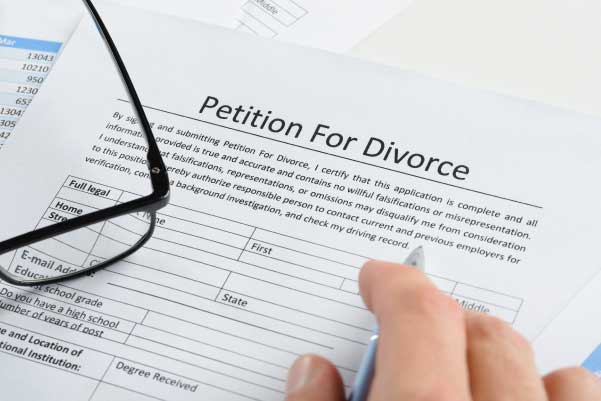** URGENT COVID-19 - WE'RE STILL OPEN *** Please click here for updates.
** COVID-19 - WE'RE STILL OPEN ***
Please click here for updates.
** URGENT COVID-19 - WE'RE STILL OPEN *** Please click here for updates.
** COVID-19 - WE'RE STILL OPEN ***
Please click here for updates.

Divorce trends are changing.
Things that were unheard just a generation ago are now well on their way to being, if not commonplace, at least not creating too much of a stir.
Many theories are being proposed for this transformation—as usual, the millennials are cited as being behind many of the changes—but no one can say for sure that any single thing is causing a divorce to be in transition.
Some of these trends are good, while others seem positive on the surface but show some tarnish when they are examined more closely. In 2016, the last year for which figures are available, there were 6.9 marriages for every thousand people in the U.S. and 3.2 of those ended in divorce, according to the National Center for Health Statistics (NCHS).

A lot has been written about the new tax bill, Congress’s Tax Cuts and Jobs Act of 2017.
The internet is packed with articles and blog posts, from The New York Times to TurboTax, warning people about the promises and pitfalls of the new bill.
A lot, too, has been written about its effect on divorce—and for good reason.

“The times they are a-changing.”
Bob Dylan wrote and sang these lyrics almost fifty-four years ago. Many of us of a certain age believed that Bob was ahead of his time, but it’s safe to say that not even the great Dylan was envisioning 2020 back in those relatively innocent days of 1964.

A divorce is always daunting, and those unhappily wed often approach the process with trepidation.
Accustomed to the financial benefits and day-to-day normalcy of marriage, many partners today choose at the outset simply to skip divorce and avoid the hassle.
In other words, some married couples settle for divorce limbo. This is a mistake!

Remember when you were little and told your parents how grand it would be to live in a bigger house or ride in a nicer car or have a cool bike like the kid down the street?
They had the same response each time. They would remind you that the grass is always greener on the other side.
You understand, of course, that they weren’t telling you the grass is greener. Your parents were reminding you that it only seems greener.
Divorce. That’s a word that usually conjures up heartache: Like that pain, you felt from too many “angry nights and tearful dawns,” to steal a few lyrics from an old Carly Simon song.
If you’re facing a divorce, you may feel confused, defeated and overwhelmed. It may seem like you’re wading into an emotional and financial minefield.
Maybe you feel like you can’t handle everything that’s coming your way – or you don’t know how to. You might feel like you’ve lost the clarity and perspective that you usually have, just when you need it the most.

What is a gray divorce? It's a term used to describe an increasing and all too common occurrence in the past decade or so--getting a divorce after the age of 50.
In recent years the rates of "gray divorce" have more than doubled!

Dating isn't easy, but it can be even harder after divorce because it brings its own set of challenges.
When a relationship like a marriage ends, you’re not yourself. You need time to rebuild and recover.
But how much time do you need?
Getting a divorce can be stressful enough, but what if the attorney you have chosen to represent you doesn’t seem to be working out?
Your relationship has come to an end. But you aren’t satisfied.
You want answers. You need closure.
But how are you defining closure? Is it a clean break with everything ended to the satisfaction of you both? Is it having all of your questions about what went wrong with your relationship answered?

You didn’t think that your future included divorce, but here you are. You don’t need to be told the downsides to divorce. You lived them. But what abo...
Most couples going through a divorce will have to deal with the issue of property and asset division. When it comes to these items, the state of Ohio is considered an equitable distribution state.
To understand divorce laws in Ohio regarding property division, you have to understand that equitable is not defined as equal, the property will not be divided 50-50. For example, just because one spouse was the major breadwinner is no guarantee that he or she will get the majority of the marital property.
The term "discovery" refers to the process of the exchange of information between the parties. This information includes each spouse’s personal and financial situations and is used in both dissolution and divorce cases in Ohio.
Informal discovery involves both sides exchanging information voluntarily. An attorney will prepare a list of important documents and ask the other lawyer for them. Your spouse’s lawyer will request the same from you. The more you both cooperate during this information exchange, the more money you will save.

When you talk to a divorce lawyer about your case, there are several questions you need to ask. But any good attorney should ask you questions as well. The more information an attorney has, the better they will be able to help you.
The important points the attorney will be looking for are when you were married, how long you have been married, what happened—or did not happen—during the marriage, your income and employment situation, if you have children and why you are in the situation you are in.
Parents have a responsibility to support their children. Obtaining child support is important for many reasons, which is why the Child Support Enforcement Agency was created. Although this agency was established by the federal government, each state is required to have its separate unit to administer a child support program.
 Although most divorces are settled outside the courtroom, an already stressful situation can become overwhelming if it goes trial.
Although most divorces are settled outside the courtroom, an already stressful situation can become overwhelming if it goes trial.
While divorces are rarely ever like the heavy drama portrayed on TV or in movies, it is still important to prepare yourself before the date of your divorce trial.
Contested divorces are time-consuming, expensive and emotionally draining. Being organized makes things easier for both you and your attorney, while also making a good impression on the judge.

Walking into a lawyer's office, especially when your mind and emotions are occupied with a looming divorce, can seem intimidating. However, preparation will go a long way and ensure that you find a lawyer who best suits you and your situation.
When you schedule a consultation with an attorney, begin jotting down any questions you can think of that you'd like to discuss. Your time is valuable, and you should get as much information out of meeting an attorney as possible.
Having questions ready beforehand will not only help alleviate some anxiety, but it'll also help you assess whether the attorney is a good fit for you.
In Ohio, the court that handles divorce and dissolution cases is the Court of Common Pleas which is located in each county. This means a particular county court has “jurisdiction” over a case.
Jurisdiction involves residency. Meeting Ohio residency requirements are usually easy and only a concern for a person who has recently moved or is planning a move shortly.

Thanks to the internet and easily available resources, more and more people are trying Do-It-Yourself divorce. In Ohio, this process is referred to as a pro se (on your behalf) divorce. Like any divorce, it involves completing paperwork, filing it with the correct court and attending a hearing. But is a DIY divorce right for you?
People wanting to do a DIY divorce are often concerned about the costs involved in hiring an attorney. Not everyone should do a divorce themselves, and several factors can make a difference. You and your spouse are good candidates for a DIY divorce if...
Jack’s Law Office
305 S Sandusky St
Delaware, OH 43015
(740) 369-7567